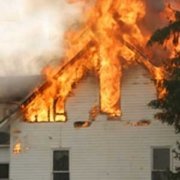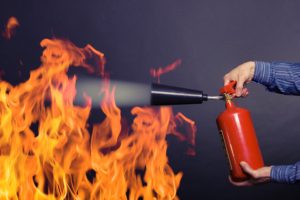 Full length, written fire risk assessments, covering all aspects of fire safety, have become a legal requirement for properties offering sleeping accommodation to paying guests from the 1st October 2023. This means that all owners that let their property to guests, even for a single night, will need to have a full written Fire Risk Assessment, by law.
Full length, written fire risk assessments, covering all aspects of fire safety, have become a legal requirement for properties offering sleeping accommodation to paying guests from the 1st October 2023. This means that all owners that let their property to guests, even for a single night, will need to have a full written Fire Risk Assessment, by law.
Fire Safety Guidance for ‘small paying guest accommodation’
Fire Safety Guidance has been published by the Home Office that covers `small paying guest accommodation’ which is defined as:
`A single premises of ground floor, or ground floor and first floor, providing sleeping accommodation for a maximum of 10 persons, with no more than 4 bedrooms on the first floor (and not having an open plan kitchen)’. Or `Individual flats (whether within a purpose-built block of flats or a house that has been converted into flats), other than unusually large flats.’
If your holiday letting property is in England the new guidance can be downloaded here:
For owners of holiday lets located in Wales the new guidance can be downloaded here:
The new guidance has been compiled following a review of best practice that should be adopted to meet obligations to comply with existing fire safety law. It was statutory from the 1st October 2023 and must be followed.
What about larger or more complex accommodation in either England or Wales?
The updated guide on larger accommodation and properties that do not fit the Small Accommodation Guide as above, is a work in progress at the Home Office. Meanwhile for these larger properties that sleep more than 10 people, have more than 4 bedrooms, are over more than 2 floors or have an open plan kitchen, you need to base your fire precautions, and fire risk assessment on the existing guidance in: Fire Safety Risk Assessment – Sleeping Accommodation:
Where can I find additional information on complying with Fire Safety?
The Professional Association of Self-Caterers UK (PASC UK) have produced a series of supplementary papers to help owners navigate making their property safe and legal, and writing their Fire Risk Assessments, as well as holding regular informative webinars on the subject. We would encourage all owners to read these papers and watch the webinars which are available on demand. Together they provide clarity on the New Fire Safety Guidance and can be found here:
Fire safety regulations are in place across the UK to help keep your guests safe while holiday letting, which is why it’s important to understand the changes.
What you need to do next?
If you haven’t already done so, review the changes in the new fire safety guidance. Update your fire risk assessment and record it in writing. Highlight the actions that are required and form a plan to address them as soon as is practical.
Resources and further information:
If you own holiday letting property located in Scotland, your guidance can be found here:
The information contained in this post is provided for informational purposes, and should not be construed as legal advice by Boshers.
Boshers offer specialist holiday home insurance to holiday let and cottage complex owners across the UK. If you need an insurance quote for your holiday let call us on 01237 429444.
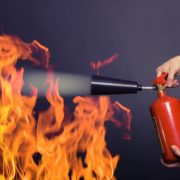

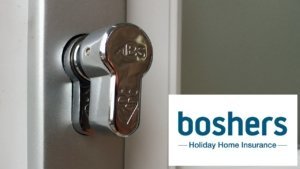 Why consider thumbturn locks for your holiday home exit doors? Have you had that frustrating moment when you get to the door and can’t find your keys to get out? It can be annoying for a few minutes whilst you locate them. However imagine if this were to happen in the case of an emergency such as a fire. The consequences could be serious and even potentially fatal.
Why consider thumbturn locks for your holiday home exit doors? Have you had that frustrating moment when you get to the door and can’t find your keys to get out? It can be annoying for a few minutes whilst you locate them. However imagine if this were to happen in the case of an emergency such as a fire. The consequences could be serious and even potentially fatal.
 The peak letting season is almost upon us. It’s time to get organised and start preparing for an influx of guests (and sunshine!). It’s vital that your holiday home is ready for everything the peak period has to throw at it. And that you’ve also taken every precaution to ensure that guests have a happy and safe stay in your property.
The peak letting season is almost upon us. It’s time to get organised and start preparing for an influx of guests (and sunshine!). It’s vital that your holiday home is ready for everything the peak period has to throw at it. And that you’ve also taken every precaution to ensure that guests have a happy and safe stay in your property.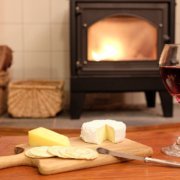
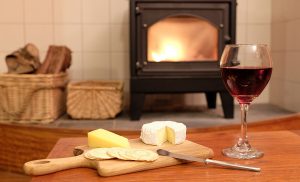 Many of us still love a bit of character in a property. For those of us that do there are few better thoughts than a cosy night in front of a fire. During the winter when the air is cooler and the nights are longer a fire or
Many of us still love a bit of character in a property. For those of us that do there are few better thoughts than a cosy night in front of a fire. During the winter when the air is cooler and the nights are longer a fire or 
 Have you considered what would happen if your
Have you considered what would happen if your 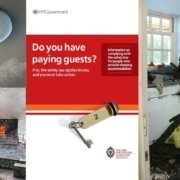
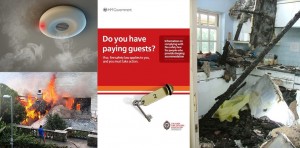 There are many different ways in which a fire could start in your holiday home. Having an understanding of the risks that fire poses to your property and your guests is vital to ensuring a safe stay in your cottage and complying with Fire Safety Law for Holiday Letting.
There are many different ways in which a fire could start in your holiday home. Having an understanding of the risks that fire poses to your property and your guests is vital to ensuring a safe stay in your cottage and complying with Fire Safety Law for Holiday Letting.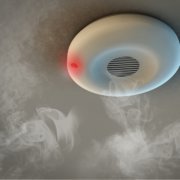
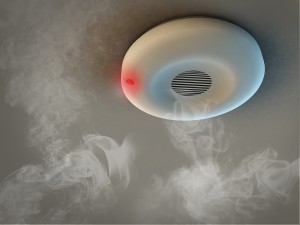 The consequences of a fire in a holiday home can be extremely expensive, disruptive and even fatal. With local fire authorities attending more than 450 household fire incidents across the country each and every day (170,000 in the past year), they are also more common than you may think.
The consequences of a fire in a holiday home can be extremely expensive, disruptive and even fatal. With local fire authorities attending more than 450 household fire incidents across the country each and every day (170,000 in the past year), they are also more common than you may think.